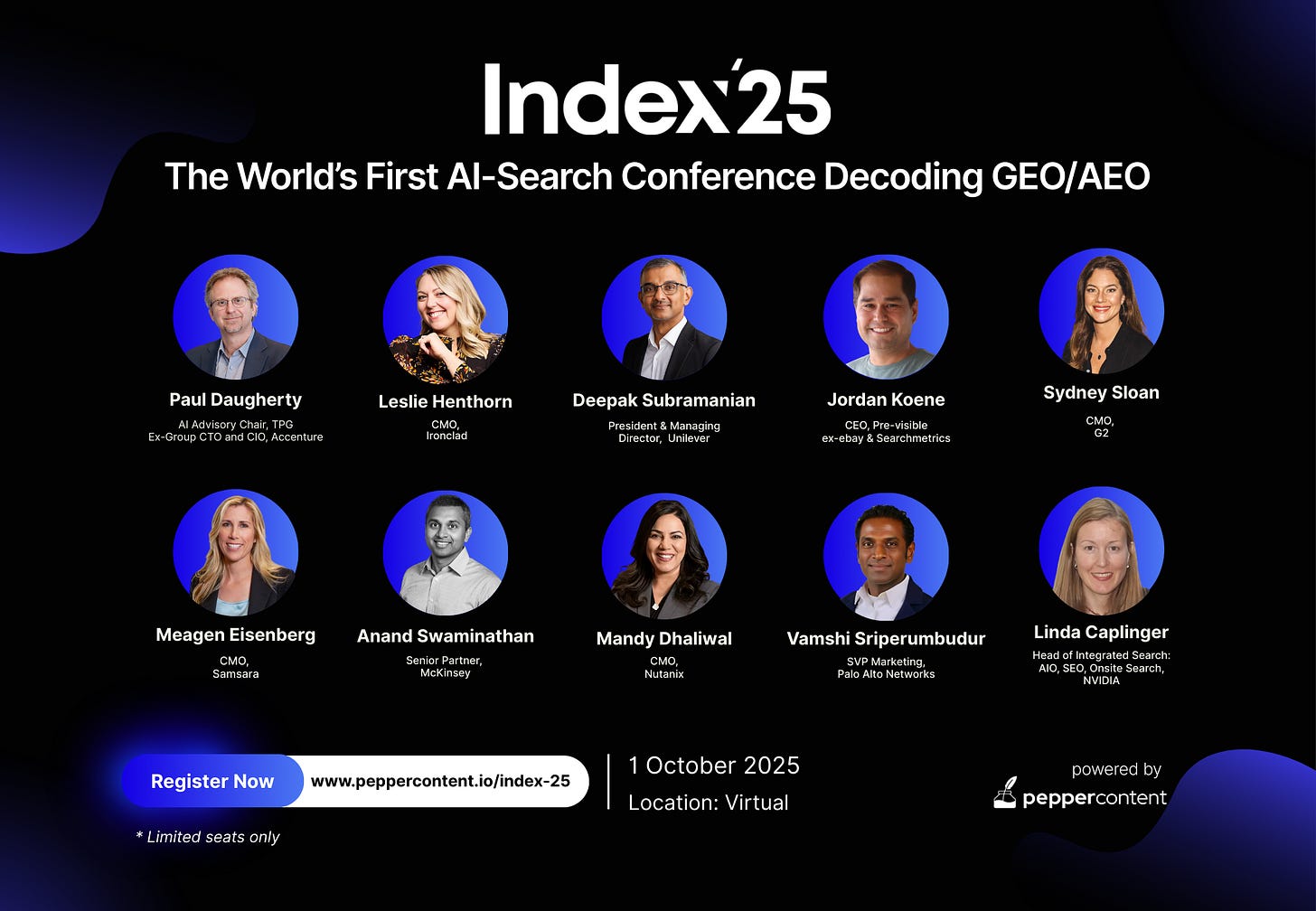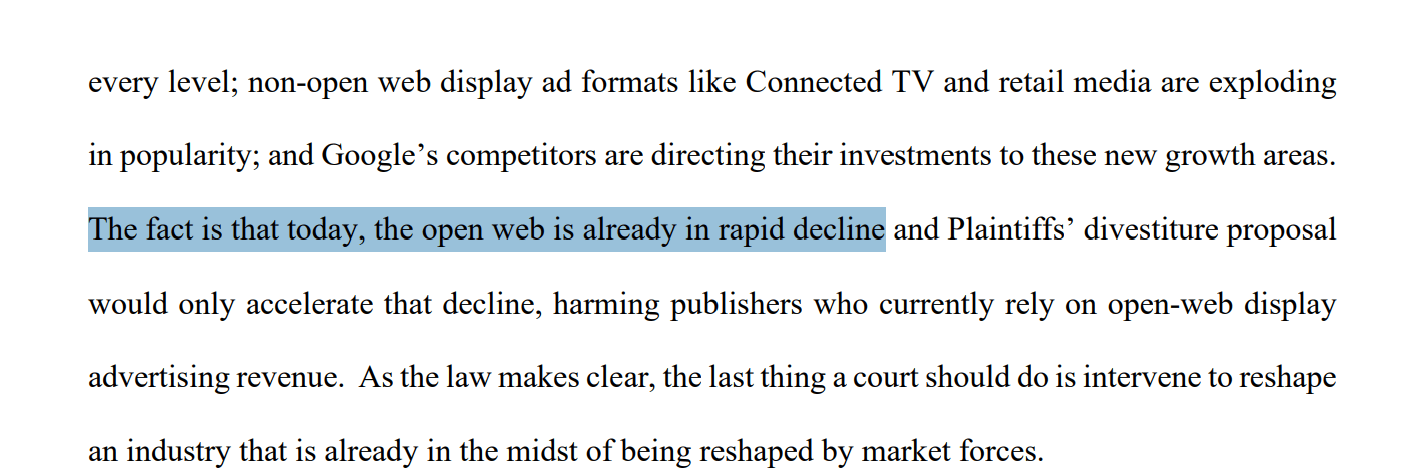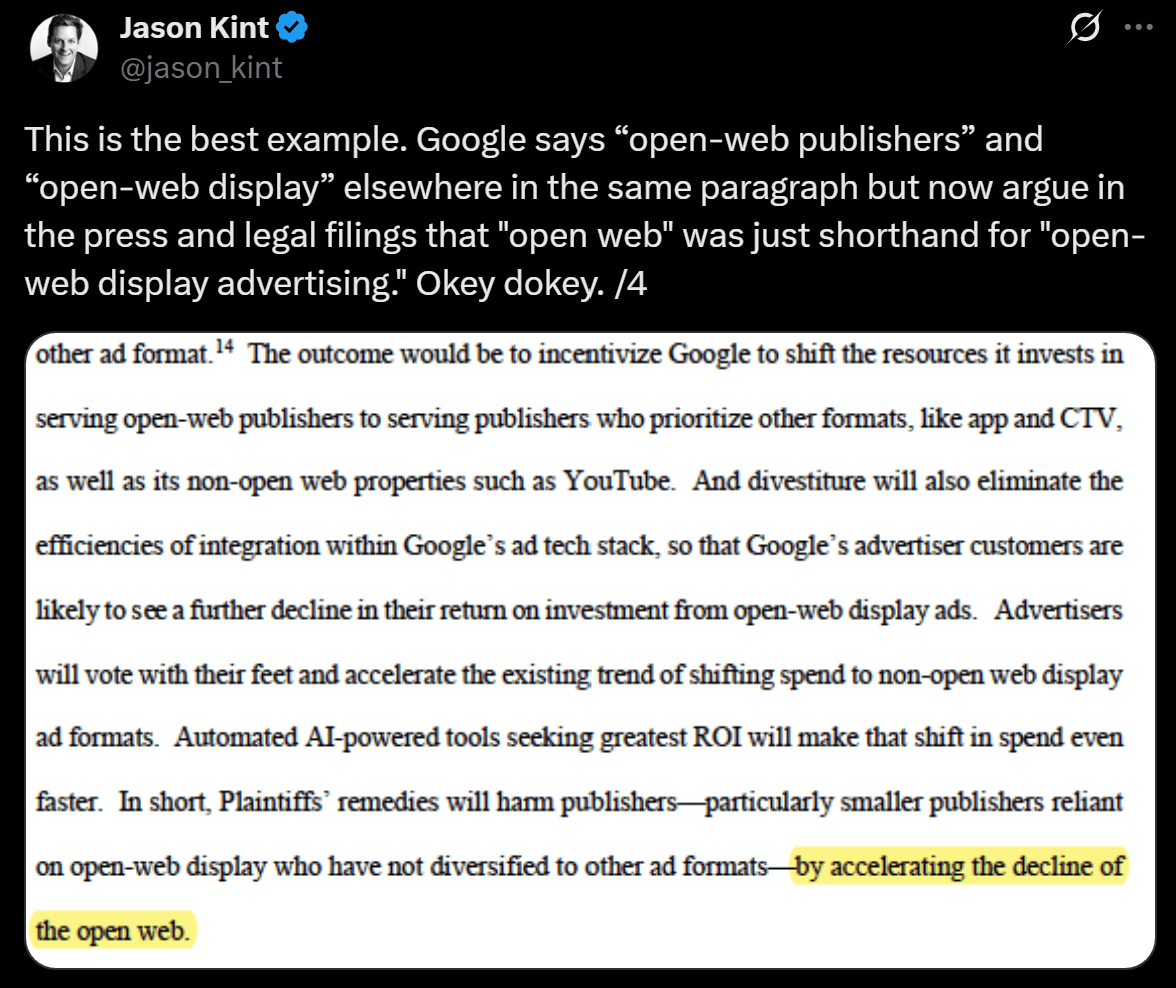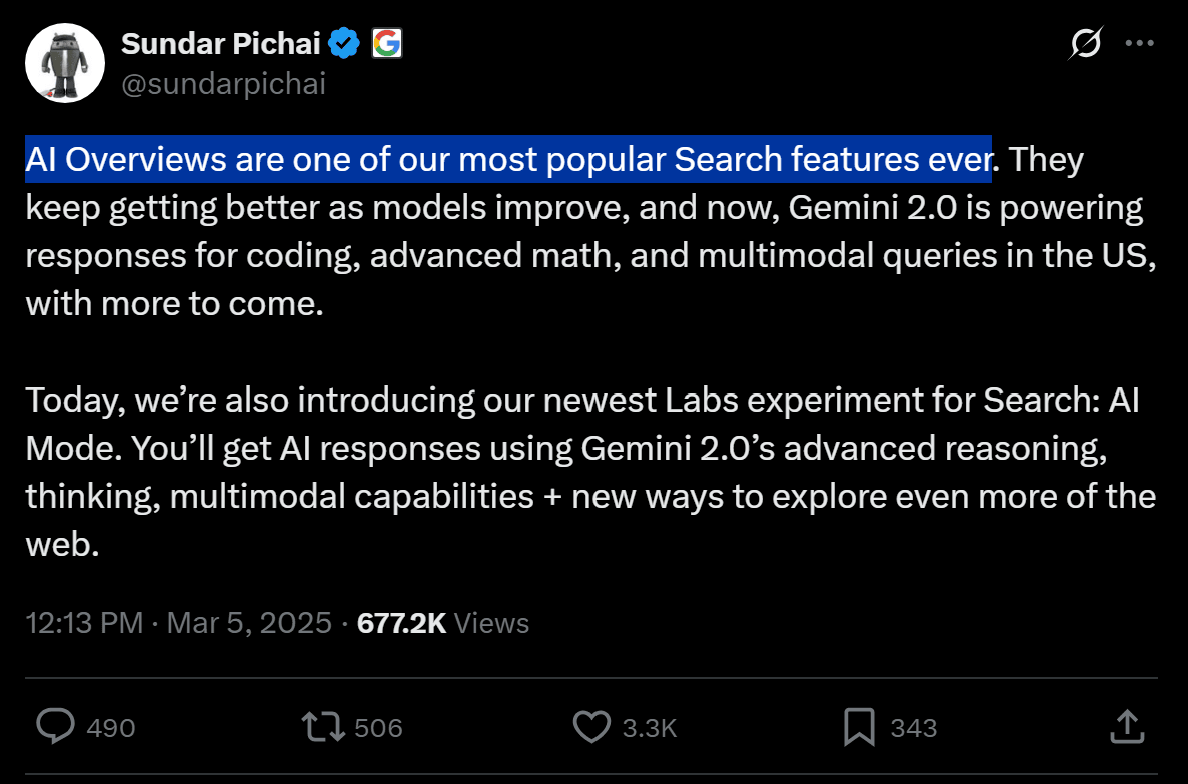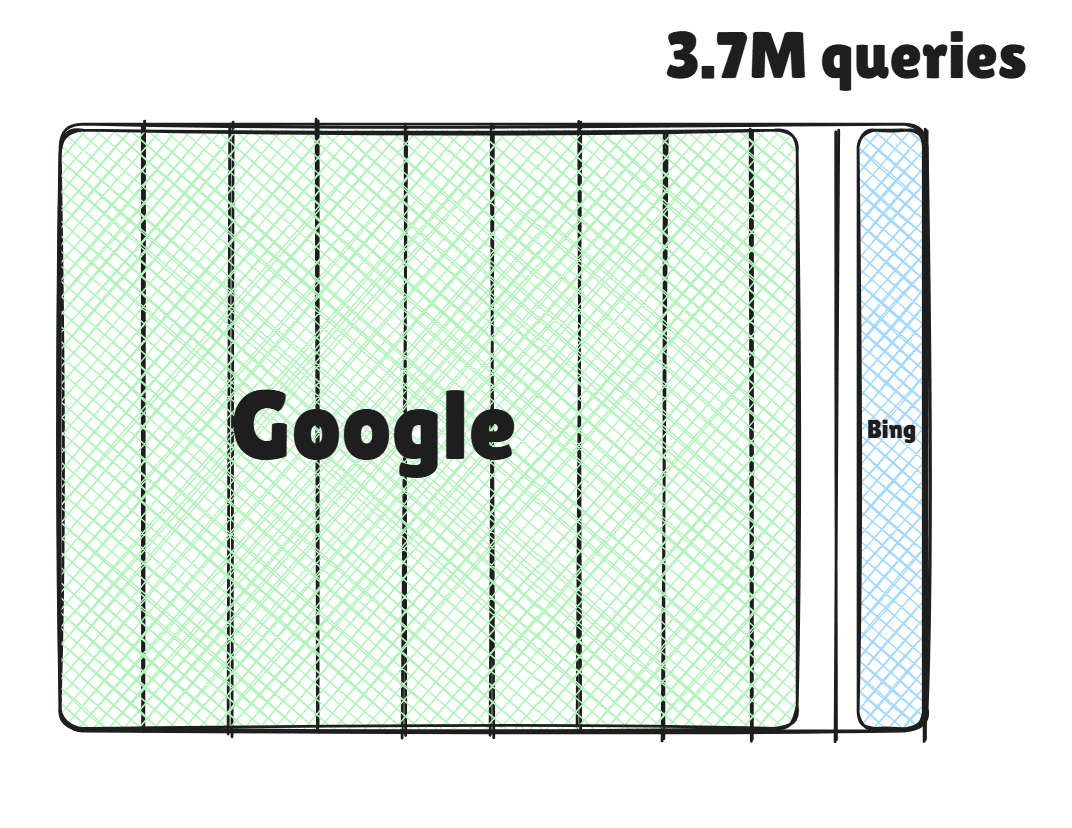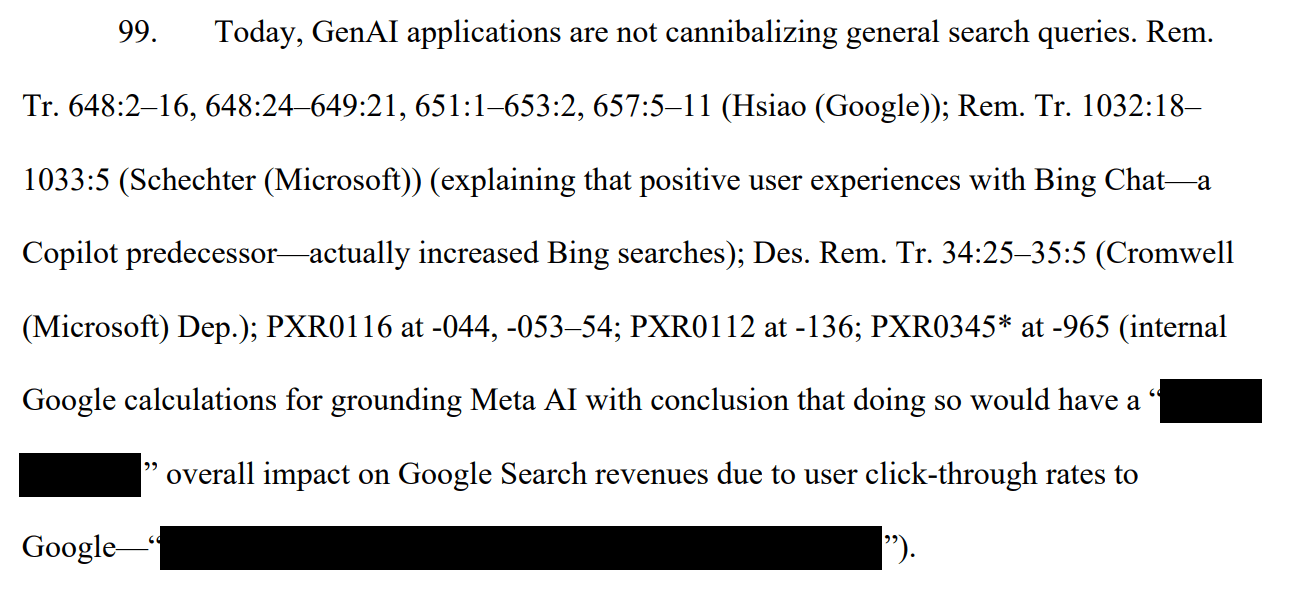Insights From the Google DOJ Documents (Part 1)
Hello Riddlers!
We're covering a hot topic this week, but before we jump into it, here's a word from this week's newsletter sponsor:
Index ’25: The World’s First AI-Search Conference
Generative Engine Optimisation (GEO) is still a grey area - everyone is experimenting, nobody has the full playbook. That’s why Pepper is bringing the industry together at Index ’25 on October 1, 2025. This fully virtual conference brings 25+ leaders from Accenture, McKinsey, Unilever, Nvidia, Samsara, G2, SEMrush, and more to decode how the world’s largest companies are approaching GEO, AEO, and AI Overviews. Expect experiments, case studies, workshops, and actionable strategies you can use right away.
Seats are limited. RSVP Here
Google did not just say in a COURT DOCUMENT that "The fact is that today, the open web is already in rapid decline"... no they didn't, right? right? 😄
It can't be, I mean after telling us on multiple occasions that "the web is thriving" and that "AI in search is driving more queries and higher quality clicks", it can't be... except they actually did 😀
When this stirred some heat, Google tried to convince us that they meant "open web display" but many are not really convinced [tweet source].
Let's not forget that google put out the statement about "more queries" right after Google’s own witness, Apple executive Eddy Cue, testified that the volume of Google Search queries in Apple’s Safari web browser had declined for the first time in 22 years likely due to the emergence of GenAI chatbots.
Sure Google, "more queries" and "the web is thriving" that makes sense… if you squint really hard. 😏
That's why in today's newsletter, we're taking a closer look at the court findings of fact and the ruling against google, and Google responses to US government lawsuits.
Since it's hard to dive into all these documents and summarize them in one blog post, expect a part 2 to this blog, so stay tuned.
TL;DR
Google didn't grow and become a monopoly by being the best search engine, but through distributing agreements. Search quality is a matter of user retention
Understand Google's transformers to understand the basics of LLMs.
Google insists that AI Overviews is their most popular feature EVER. I'm starting to think, it's popular internally to them in terms of their bottom line 😄
AI Overviews uses "fast search" and "MAGIT" to retrieve and summarize information.
Bing is downplayed, yes it has a very small market share compared to Google, but did you know it has unique search queries, it's easier to rank for, and it generally returns better results for desktop users?
The way users interact with your website can impact your crawlability.
Perplexity incorporates external ranking signals to its system. This means that ranking on other platforms like Google and Youtube for example can impact your citation in Perplexity (although not the only ranking signals).
GenAI applications are causing an increase in searches on search engines. So while we're sitting here chatting and speculating about CTR to our websites, Google is making even more money out of this AI/LLM revolution after all 😄
Google is a monopolist
Google being declared a monopolist in last year’s trial wasn’t exactly breaking news. What was interesting is the spotlight it put on how Google built and defended that monopoly: through distribution deals with browser makers, device manufacturers, and carriers, ensuring it became the default search engine right out of the box.
This isn’t really an SEO story, it’s a growth story.
Turns out, one of the most powerful growth levers for a SaaS isn’t just marketing or product, it’s securing distribution agreements that make your tool the default choice for a massive audience.
All the efforts we see Google put into the "quality of it's search results" are actually a retention policy, not an acquisition tactic. Take notes people!
All modern AI models are based on Google’s transformer architecture
While a lot of people know this, a lot also don't. Google invented the transformers model which is now the backbone of all modern LLMs.
If you want to understand how all modern LLMs work, maybe start by reading Google's paper.
I wanted to highlight this because I see a lot of people reading/learning generic information about LLMs, but these generic learnings may not apply to today's models. Keep that i mind.
AI Overviews is the most popular Google feature EVER 😄
According to the court documents, Google described AI Overviews as a feature that "uses a custom Gemini-based model to give users for any query overall context, a summary, and then helps them explore sources on the web, and it’s been one of the most popular features we’ve launched in Google Search.”
It's hard to ignore the claim that Google keeps repeating at every occasion apparently that AI Overviews is their most popular feature EVER 😄😄😄😄😄 (5 laughs because one is not enough)
Here's another incident this year where Sundar Pichai said the same claim with absolutely no supporting data other than "because I said so"
I would love to know how are they measuring this popularity? Is it helping users search less because they found their answers? because we know that Liz Reid just said that AI in search is driving more queries 😄
Maybe they're measuring popularity by how often users just smile and wave every time they see an AI Overviews in search 👋😅
AI Overviews is based on Gemini
In more accurate words, AI Overviews is based on a custom Gemini-based model called MAGIT.
What does that mean for us as SEOs? the path to understanding citation in AI Overviews should include understanding and testing Gemini.
I think for me, I'll dedicate sometime to comparing outputs from Gemini and AI Overviews. Most of the efforts I've seen are analyzing one side of this story "AI Overviews", and I don't think this gives us the complete picture of how it works.
Here's how (to my understanding) how AI Overviews are generated:
I guess this "fast search" system that's used to retrieve information may explain the discrepancy between traditional search results and what URLs are getting cited in AI Overviews.
Google vs. Bing
The court document states that "An analysis of 3.7 million unique phrases searched on Google and/or its biggest competitor, Bing, over a seven-day period showed that 93% were seen solely by Google while just 4.8% were seen solely by Bing"
It's no surprise, however attaching numbers to this makes it interesting and drawing it reveals more. This means that there's only 2.2% of query overlap between Google and Bing.
What does this mean for SEO?
I guess checking Bing Webmaster Tools is worth it, as there maybe a different set of keywords, and you can optimize/create content for them with higher probability of success in ranking.
Google incorporates user behavior better
Because Google is getting way more data on user behavior and how they interact with search results, they are more equipped to use this data to qualify results. Ad the court document puts it "affords it greater insight into what information users are looking for and which results they find relevant and authoritative."
Read more about how user interactions impact Google search results.
Bing on the other hand, does not have the same scale of queries and therefore data. Does that mean that Google provides superior results all the time?
The court documents refer to a 2021 Apple study "that measured the relevance of search results on Google and Bing. While Bing outperformed Google Search when it comes to the desktop user interface, Apple's investigation found that Google had the edge over Bing on all other benchmarks."
What does that mean for SEO?
If your audience are primarily on desktop, consider looking into ranking on Bing as it maybe easier to rank there, knowing that user behavior does not play the same role as in Google search.
Google employs user data more than we think
How far off are we exactly from how Google actually works? 😄 turn out, user data is not only impacting ranking in search, but it also impacts:
which websites to crawl
in what order
at what frequency
So next time you wonder why a client website is not getting accessed by Google as often as you may want, it might not be just a technical issue. It maybe a matter of how users interact with the website.
Technical health of your website is great, but CTR, bounce rate (yes I said that) and other metrics that can qualify users' interest in your website can impact your website's crawlability and indexability.
Perplexity uses external ranking signals
In court documents, it was made clear that perplexity uses outsourced ranking signals in it's system.
The way Perplexity works simply is:
It takes what users ask,
looks through its index,
ranks sources,
and uses an AI model to pick and combine answers.
Simple right? here's where it gets complex, court documents revealed that Perplexity also depends on ranking information from other companies, which get the top results from search engines like Google and send them to Perplexity through an API.
Ranking in Google, and other surfaces, can impact your rankings in Perplexity.
The "more queries" claim
I found this interesting piece of information in the court documents, which may explain why Liz Reid said AI in search is driving more queries.
Apparently GenAI applications are causing an increase in searches on search engines? It's hard to decipher this part, but the example mentioned states that a positive experience on Bing chat caused increased Bing searches.
But also another reason for the increase in queries, is GenAI applications search Google for grounding (validating the information).
Can you guess the redacted text? 😄
Conclusion: The use of GenAI applications is driving more queries to Google and therefore having a "positive impact" on Google search revenue.
While we're worried as SEO on the CTR to our website, Google is having a field day by winning whether users start their journey on Google search or on a GenAI application.
And That’s a Wrap (Almost 😄)
Just wow... going through those documents is like diving into the ocean and coming across a wealth of revelations.
Honestly, it's hard to write one specific conclusion for all of this.
But aside from all the bits and pieces, it's clear that Google runs a tight propaganda machine where it tells the media a story, but the court another and this is our chance to get some answers and clarity.
That's that for today folks and see you next newsletter!


